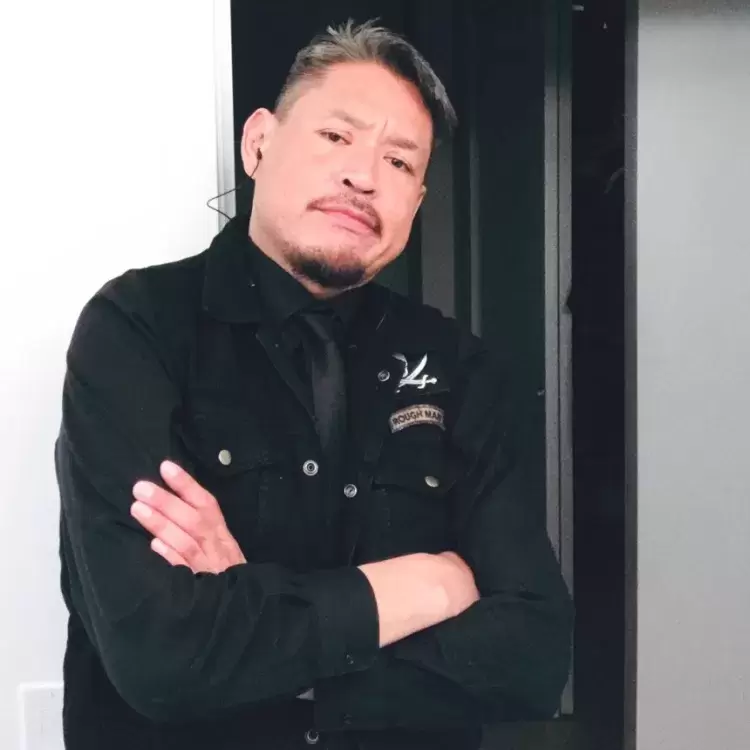Only about a month after he was told he had end-of-life liver disease, Nuu-cha-nulth man David Dennis is settling into a hospice in Vancouver as he waits to find out if he'll be put on the waiting list for a life-saving liver transplant.
Last week, the 44-year-old father of five believed he was excluded from BC Transplant's organ donor registry due to an abstinence policy requiring no alcohol consumption for six months, but after an influx of media attention around Dennis' story, a Vancouver-based liver specialist is saying there is misunderstanding surrounding the policy.
Dr. Eric Yoshida, a transplant hepatologist and member of the liver transplant team at Vancouver General Hospital, said during policy discussions in May the hospital's transplant team agreed that the six-month abstinence rule would no longer be in effect.
"[Patients] go through an assessment but the key is that it isn't written in stone that you have to have six months (substance free) or you will be absolutely denied, whereas that was the case before," Yoshida said.
Yoshida said the abstinence policy, which goes back to the early 1990s, was in place all across Canada and the United States.
"There was some studies that suggested that the re-occurrence of alcohol was much less, and patient outcomes are much better, if a patient had undergone a supervised abstinence period for six months," he said. "It seemed pretty definitive and became kind of the official guidelines or policy statements of the American and Canadian (health) organizations, and therefore it kind of became the policy across the entire continent.”
But this practice is being reconsidered, based on medical studies Yoshida has reviewed.
“[I]t's becoming clear to me that the six month abstinence rule is no longer supported by modern research,” he said. “Modern research suggests that there's no difference in...patient survival between those who met the six month abstinence rule and those who did not, or could not."
Yoshida said BC Transplant is looking forward to meeting with Dennis to discuss further assessment for a liver transplant.
Dennis, who has been sober for two months, said finding out if he'll be on the list to receive a liver transplant is a waiting game now.
"We haven't had written confirmation of anything other than the fact that I've got blood tests that I've got to complete," Dennis said. "I had verbal commitments from the [First Nation Health Authority] that they're sorting it out. It's one of those situations where we don't know. We're kind of just stuck in this limbo of not knowing, so it's difficult... it's scary."
Originally, Dennis believed the six-month abstinence rule was discriminatory against Indigenous people, prompting himself, the Union of BC Indian Chiefs (UBCIC) and the organization he leads, the Frank Paul Society, to file a complaint with the BC Human Rights Tribunal, which he said still stands and hasn't been withdrawn.
Grand chief Stewart Phillip, president of the UBCIC, said the union felt that it was appropriate to support Dennis’ "efforts to challenge the six-month sobriety and abstinence policy of the BC Transplant Society."
"It’s a well-established fact that Indigenous people suffer as a consequence of the trauma from the residential school experience, child apprehensions and crushing poverty," Phillip said. "[Indigenous people] have higher rates of substance abuse and alcoholism and to apply that yard stick equally is discriminatory."
After a series of media engagements, Phillip said the B.C. Ministry of Health and BC Transplant have offered statements of regrets and have indicated "that this has been a very terrible misunderstanding."
Phillip reiterated the policy in question was set aside in May of this year and BC Transplant are going to review Dennis’ file and "do their upmost to support him in acquiring the desperately needed liver transplant."
"We’re very, very pleased that all parties are on the same page now and we’re looking forward to David receiving a life-saving transplant," Phillip said.
Dennis said he’s getting weaker every day but believes life is still worth fighting for.
“I leave behind five if I die,” he said. “It’s been a difficult ride.”







